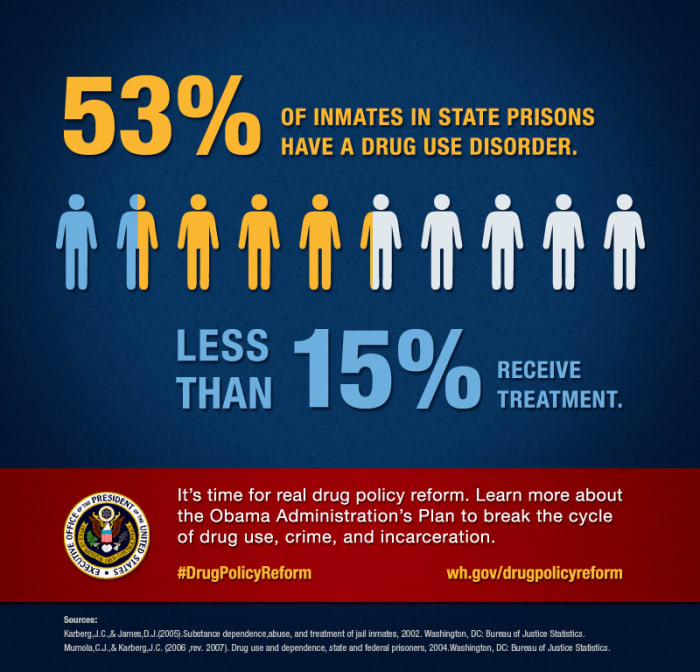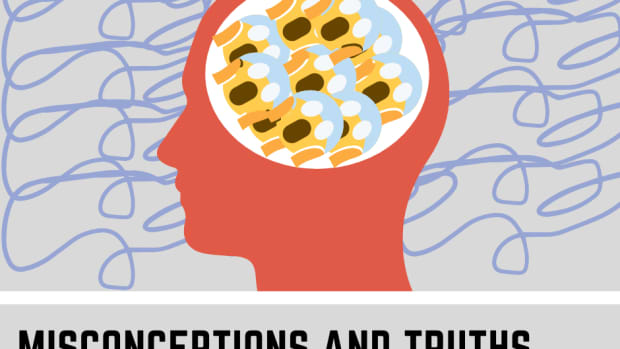Working to Reduce Crime: Punishment or Rehabilitation?
What Is Rehabilitation?
Rehabilitation is one of the goals of the correctional system. It is believed that offenders can be treated and returned to society as law-abiding citizens and live a life free of crime. Rehabilitation consists of:
- Mental health programs
- Substance abuse services
- Education services
Programs of rehabilitation were designed for:
- Sex offenders
- Parolees
- Women
"We can't just rail against crime. We must speak of the root problems—devastating family breakup, an insidious culture of violence that cheapens human life, skyrocketing prisoner recidivism rates that rob our communities of husbands and fathers—and recognize that there is a societal role in rehabilitation and restoration."
— Frank Wolf
What Is Punishment?
Based on the severity of the crime, a criminal offense may be disciplined in a variety of ways, such as:
- Death penalty
- Incarceration in prison or jail
- Probation
- Fines
- Restitution
Punishment of offenders is required at points in order to deter law violators from repeating the crime. Punishment for one individual may be considered an example of what could happen to others in society, in hopes that they may think twice about committing the same crime.
Historical Forms of Punishment
Due to our eighth amendment, many of the historical punishments that were cruel and unusual are no longer allowed. Some of the punishments that were historically used to punish offenders were:
- Public humiliation
- Workhouses
- Exile
Where Incarceration Takes Place
If an offender is sentenced to incarceration for more than one year, generally they are sent to state prison; if less than one year, they are sent to a local jail. After a specific portion of an offender's sentence is served, they may become eligible for parole.
Recommended
Rehabilitation or Punishment ?
Should we opt for rehabilitation or punishment when responding to crime?
I believe that rehabilitation in most cases is best for the offender. I feel that punishment is best for the most severe crimes, such as murder. However, many murderers have been released from prison and given the chance to rebuild their lives. Criminals who conduct brutal crimes deserve punishment, and they shall not be given the opportunity to return to society and live a normal life after they have taken one.
Rehabilitation should be considered based on the severity and circumstances of the crime and the offender's background. Some violent offenders don’t deserve second chances, but some offenders do.
We already know how overcrowded our correctional facilities are, so incarcerating a non-violent offender just does not make much sense to me.
"I think one of the keys to any crime-prevention program that's got to be developed is to focus on punishment—to let people know that there is a sanction and a punishment for hurting others."
— Janet Reno
Are There Alternatives to Incarceration?
Depending on the crime and the severity, there are plenty of alternatives. The two most common alternatives are probation and house arrest, in which offenders are given specific conditions to follow and are supervised
I think that non-violent offenders, once again depending on the severity of the crime, should be given an alternative form of incarceration. I think that it would greatly reduce the number of offenders that are currently in prison for non-violent crimes, and they would be given the chance to obtain the help they need and rebuild their lives.
Less Than 15% Receive Treatment
Most criminal offenders have some form of mental health or substance abuse issue. These offenders need treatment. I feel that correctional facilities should be providing quality treatment to offenders. Yes, they have done wrong, but they are facing their punishment. Just because one does wrong does not give us the right to do wrong.
Many offenders go without treatment; if they were to be released, they have a higher chance of re-offending. Regarding rehabilitation and punishment, maybe it would be best if they were actually combined for each offender. I know some prisons have many programs; however, they are only limited to certain offenders. All offenders should be able to participate in rehabilitation programs.
This content reflects the personal opinions of the author. It is accurate and true to the best of the author’s knowledge and should not be substituted for impartial fact or advice in legal, political, or personal matters.












